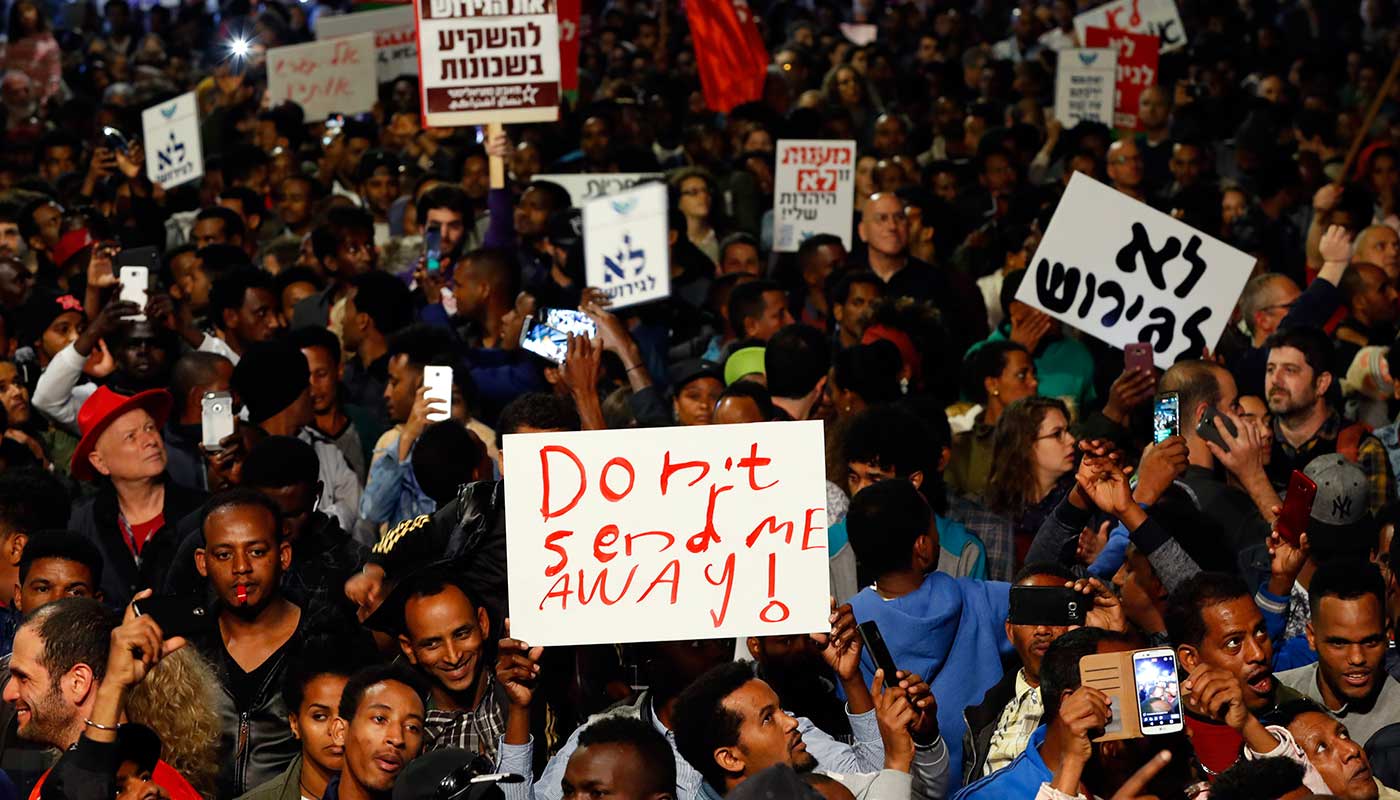Benjamin Netanyahu backs out of asylum-seeker deal
Israeli PM had agreed to grant some refugees residency while sending others to Germany and Canada

A free daily email with the biggest news stories of the day – and the best features from TheWeek.com
You are now subscribed
Your newsletter sign-up was successful
Israeli Prime Minister Benjamin Netanyahu has suspended a deal struck with the United Nations refugee agency to resettle or give residency to thousands of African asylum seekers, just hours after news of the plan was made public.
Under the five-year deal, around 16,000 Eritrean and Sudanese asylum seekers currently in Israel who were facing prison or deportation would have been sent to countries including Germany, Italy and Canada.
Netanyahu had earlier announced that for every one of those that were resettled in the West, Israel would grant one asylum seeker “temporary residency”.
The Week
Escape your echo chamber. Get the facts behind the news, plus analysis from multiple perspectives.

Sign up for The Week's Free Newsletters
From our morning news briefing to a weekly Good News Newsletter, get the best of The Week delivered directly to your inbox.
From our morning news briefing to a weekly Good News Newsletter, get the best of The Week delivered directly to your inbox.
Netanyahu faced strong criticism from “anti-migrant groups in southern Tel Aviv and powerful politicians in his own governing coalition”, says the BBC, leading him to rethink the deal.
Jewish Home party leader Naftali Bennett warned that the new UN deal would “turn Israel into a paradise for infiltrators”.
Both Italy and Germany said they were “unaware of any such resettlement deal”, says The Guardian, which has added to the confusion.
The UN deal was intended to replace a controversial plan that had resulted in the forced deportation of asylum seekers to African countries including Rwanda and Uganda.
A free daily email with the biggest news stories of the day – and the best features from TheWeek.com
It was halted by the Supreme Court, says The Times of Israel, after asylum seekers who had been deported said they were facing “serious danger and even imprisonment after arriving in Africa without proper documents”.
-
 Will increasing tensions with Iran boil over into war?
Will increasing tensions with Iran boil over into war?Today’s Big Question President Donald Trump has recently been threatening the country
-
 Corruption: The spy sheikh and the president
Corruption: The spy sheikh and the presidentFeature Trump is at the center of another scandal
-
 Putin’s shadow war
Putin’s shadow warFeature The Kremlin is waging a campaign of sabotage and subversion against Ukraine’s allies in the West
-
 Epstein files topple law CEO, roil UK government
Epstein files topple law CEO, roil UK governmentSpeed Read Peter Mandelson, Britain’s former ambassador to the US, is caught up in the scandal
-
 Iran and US prepare to meet after skirmishes
Iran and US prepare to meet after skirmishesSpeed Read The incident comes amid heightened tensions in the Middle East
-
 Israel retrieves final hostage’s body from Gaza
Israel retrieves final hostage’s body from GazaSpeed Read The 24-year-old police officer was killed during the initial Hamas attack
-
 China’s Xi targets top general in growing purge
China’s Xi targets top general in growing purgeSpeed Read Zhang Youxia is being investigated over ‘grave violations’ of the law
-
 Panama and Canada are negotiating over a crucial copper mine
Panama and Canada are negotiating over a crucial copper mineIn the Spotlight Panama is set to make a final decision on the mine this summer
-
 Why Greenland’s natural resources are nearly impossible to mine
Why Greenland’s natural resources are nearly impossible to mineThe Explainer The country’s natural landscape makes the task extremely difficult
-
 Iran cuts internet as protests escalate
Iran cuts internet as protests escalateSpeed Reada Government buildings across the country have been set on fire
-
 US nabs ‘shadow’ tanker claimed by Russia
US nabs ‘shadow’ tanker claimed by RussiaSpeed Read The ship was one of two vessels seized by the US military